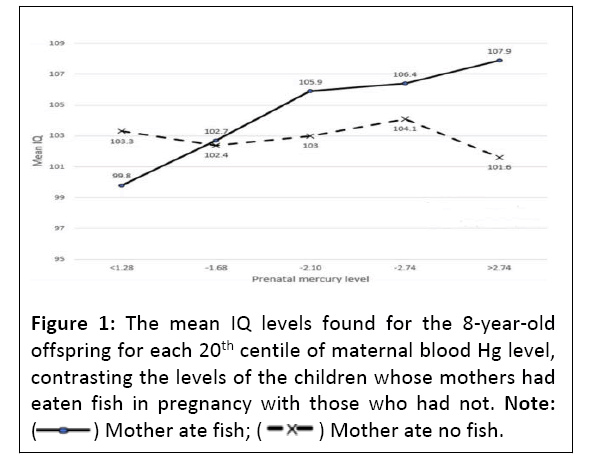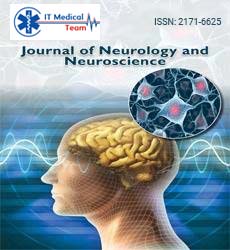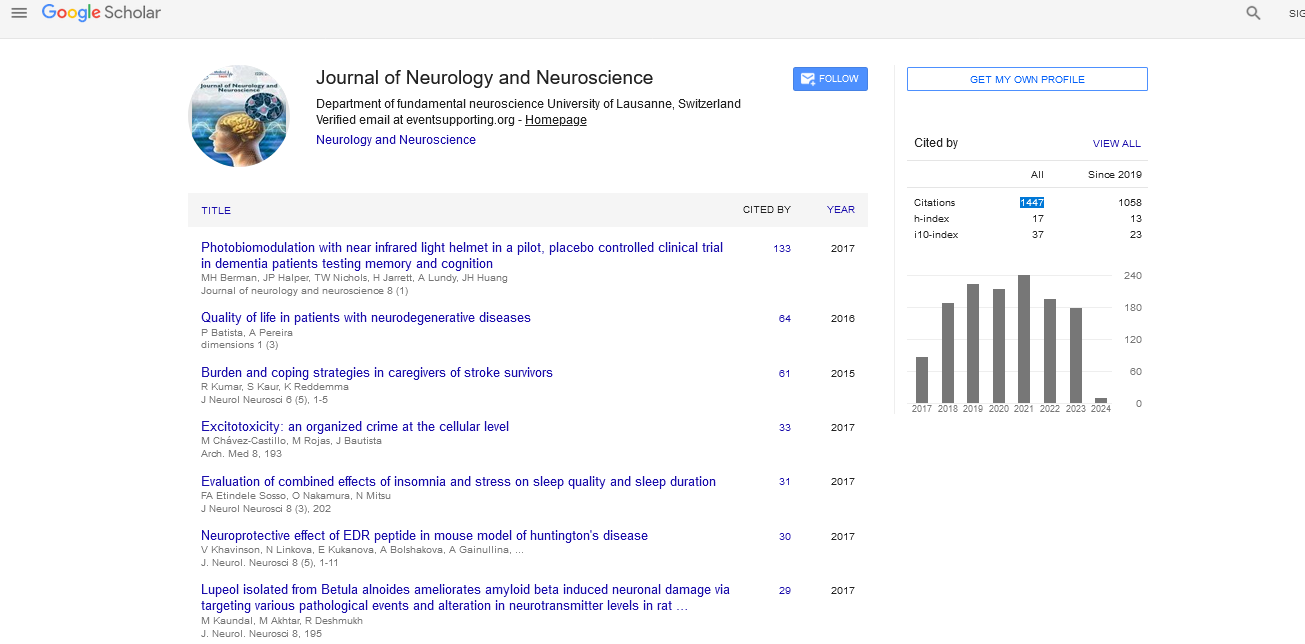Commentary Article - (2023) Volume 0, Issue 0
The Safety of Promoting Fish Consumption in Pregnancy
Jean Golding* and
Caroline M. Taylor
Centre for Academic Child Health, Population Health Sciences, Bristol Medical School, University of Bristol, Bristol, England, UK
*Correspondence:
Jean Golding, Centre for Academic Child Health, Population Health Sciences, Bristol Medical School, University of Bristol,
Bristol, England,
UK,
Email:
Received: 15-Aug-2023, Manuscript No. IPJNN-23-14023;
Editor assigned: 17-Aug-2023, Pre QC No. IPJNN-23-14023;
Reviewed: 31-Aug-2023, QC No. IPJNN-23-14023;
Revised: 07-Sep-2023, Manuscript No. IPJNN-23-14023;
Published:
15-Sep-2023, DOI: 10.4172/2171-6625.23.S7.002
Description
Since the Minamata tragedy in 1956 in which there were
adverse neurodevelopmental consequences to the offspring of
pregnant mothers eating shellfish contaminated with very high
levels of mercury, toxicologists have been aware of the
possible harmful neurological effects of prenatal exposure to
mercury on the offspring [1]. Subsequently there were other
tragic exposures to high levels of mercury in pregnancy with
similar results. This raised anxiety in the general population
to avoid mercury from all sources and at all levels of
exposure. A publication on prenatal mercury exposure in the
Faroes focussed attention specifically on seafood. The
population of the Faroes was known to have high blood levels
of mercury largely due to their high consumption of pilot
whale [2]. Grandjean and colleagues studied 917 offspring of
women and compared their IQ and other neurocognitive test
levels with the concentration of mercury in their cord blood at
the time of delivery [3]. They showed that, in general, the
higher the mercury level the lower the cognitive ability of the
offspring.
The cumulative effect of these reports was to convey the
message that seafood contains high levels of mercury, and that
this may harm the brain of the unborn child. Scientists had
shown that the amount of mercury in fish varied with the
species, with those at the higher end of the food chain, such as
shark or swordfish, having higher levels [4]. Although there was
ample evidence to indicate that if the mother ate fish during
pregnancy the offspring would benefit policy-makers advised
pregnant women to eat fish during pregnancy but to avoid those
fish with likely high levels of mercury [5]. This resulted in
confusion such that women were often unsure as to which fish
to avoid, and many then avoided fish altogether [6,7].
The initial results from the Faroes resulted in a number of
studies being devised to look at the long-term consequences of
fish consumption and the relationship with mercury. The most
statistically powerful of these were those undertaken in the
Seychelles in the Indian Ocean, where the majority of the
population were fish-eaters, and in the Avon Longitudinal Study
of Parents and Children (ALSPAC) in the UK [8,9]. Both studies
showed benefits of fish consumption during pregnancy. No adverse associations were found between maternal mercury levels
and neurodevelopment in the Seychelles where the
majority of the population ate fish frequently [10]. Recent
analyses of the ALSPAC cohort study have demonstrated that
although mercury levels in women who did not eat fish were
associated with poorer neurocognitive outcomes, the mercury
levels among fish eating mothers were associated with
beneficial outcomes in their children in Figure 1, there
were significant interactions between fish consumption and
mercury blood level for eight further outcomes including IQ
and scores for educational achievements [11,12].

Figure 1: The mean IQ levels found for the 8-year-old
offspring for each 20th centile of maternal blood Hg level,
contrasting the levels of the children whose mothers had
eaten fish in pregnancy with those who had not. Note:
Conclusion
No studies have shown an adverse outcome with
consumption of fish that have high levels of mercury (consumers
of such fish would likely be within the higher end of maternal
blood mercury among fish-eaters which shows no deterioration
in offspring ability). Together with the Seychelles study, the
implication from the ALSPAC data is that it is better to
recommend fish consumption in pregnancy, regardless of
species. It should be noted that such a recommendation is not
for other seafood such as whale meat or shellfish where
contamination is likely to be much greater, and the nutritional
benefits of fish eating are not as great.
Funding Statement
CMT was funded by a Medical Research Council (MRC) Career
Development Award (grant number MR/T010010/1).
References
- Kondo K (2000) Congenital minamata disease: warnings from japan's experience. J Child Neurol 15:458-464.
[Crossref] [Google scholar] [PubMed]
- Grandjean P, Weihe P, Jorgensen PJ, Clarkson T, Cernichiari E, et al. (1992) Impact of maternal seafood diet on fetal exposure to mercury, selenium, and lead. Arch Environ Health 47:185-195.
[Crossref] [Google scholar] [PubMed]
- Grandjean P, Weihe P, White RF, Debes F, Araki S, et al. (1997) Cognitive deficit in 7-year-old children with prenatal exposure to methylmercury. Neurotoxicol Teratol 19:417-428.
[Crossref] [Google scholar] [PubMed]
- Kamps L R, Carr R, Miller H (1972) Total mercury-monomethylmercury content of several species of fish. Bull Environ Contam Toxicol 8:273-279.
[Crossref] [Google scholar] [PubMed]
- Hibbeln JR, Spiller P, Brenna JT, Golding J, Holub BJ, et al. (2019) Relationships between seafood consumption during pregnancy and childhood and neurocognitive development: Two systematic reviews. prostaglandins leukot essent fatty acids 151:14-36.
[Crossref] [Google scholar] [PubMed]
- Oken E, Kleinman KP, Berland WE, Simon SR, Rich-Edwards JW, et al. (2003) Decline in fish consumption among pregnant women after a national mercury advisory. Obstet Gynecol 102:346-351.
[Crossref] [Google scholar] [PubMed]
- Beasant L, Ingram I, Taylor CM (2023) Fish consumption in pregnancy in relation to national guidance in England in a mixed-methods study: The PEAR study. Nutrients 15:3217.
[Crossref] [Google scholar] [PubMed]
- Myers GJ, Davidson PW, Cox C, Shamlaye CF, Palumbo D, et al. (2003) Prenatal methylmercury exposure from ocean fish consumption in the Seychelles child development study. Lancet. 361:1686-1692.
[Crossref] [Google scholar] [PubMed]
- Hibbeln JR, Davis JM, Steer C, Emmett P, Rogers I, et al. (2007) Maternal seafood consumption in pregnancy and neurodevelopmental outcomes in childhood (ALSPAC study): An observational cohort study. Lancet 369:578-585.
[Crossref] [Google scholar] [PubMed]
- Davidson PW, Cory-Slechta DA, Thurston SW, Huang LS, Shamlaye CF, et al. (2011) Fish consumption and prenatal methylmercury exposure: cognitive and behavioral outcomes in the main cohort at 17 years from the Seychelles child development study. Neurotoxicology 32:711-717.
[Crossref] [Google scholar] [PubMed]
- Golding J, Gregory S, Iles-Caven Y, Emond A, Hibbeln J, et al. (2017) Maternal prenatal blood mercury is not adversely associated with offspring IQ at 8 years provided the mother eats fish: A British prebirth cohort study. Int J Hyg Environ Health 220: 1161-1167.
[Crossref] [Google scholar] [PubMed]
- Golding J, Taylor C, Iles-Caven Y, Gregory S (2022) The benefits of fish intake: Results concerning prenatal mercury exposure and child outcomes from the ALSPAC prebirth cohort. Neurotoxicology 91:22-30.
[Crossref] [Google scholar]
Citation: Golding J, Taylor CM (2023) The Safety of Promoting Fish Consumption in Pregnancy. J Neurol Neurosci Vol.14 No.S7:002







